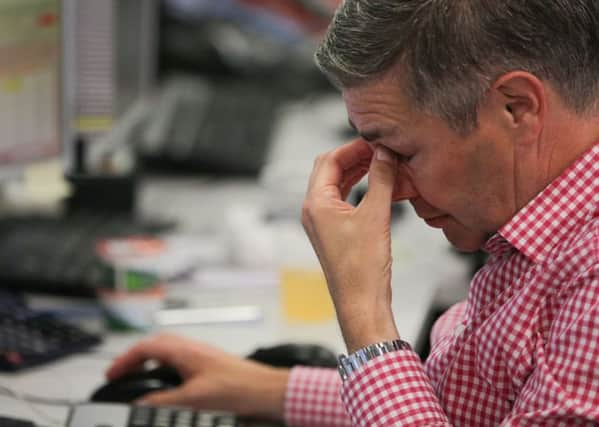Bill Jamieson: Even the shrewdest investors can suffer a bump
This article contains affiliate links. We may earn a small commission on items purchased through this article, but that does not affect our editorial judgement.


A portfolio of shares can be hit by sharp falls on not one but a number of fronts simultaneously.
It’s often put down to poor stock selection, bad timing, inexperience, lack of knowledge or bad judgement by amateur investors. But when it happens to one of the UK’s top-rated fund managers, it’s not just a shock for the tens of thousands of investors who follow him – but a salutary lesson that fortune in the stock market can be fickle – and fickle in different sectors at the same time.
• READ MORE: Markets and economy news
Advertisement
Hide AdAdvertisement
Hide AdFew investment managers have been more lauded that Neil Woodford. But of late the hugely popular Woodford Equity Income fund, launched in 2014 and a giant in the fund industry with assets of £9.8 billion, has hit troubled waters. And over the past two weeks some of the fund’s biggest shareholdings have been battered by a force nine gale.
Among the jaw-dropping falls is the fund’s holding in roadside recovery and motor insurer business AA Group, whose shares plunged 18 per cent last week on news that executive chairman Bob Mackenzie was fired for gross misconduct. The group also lowered its full-year forecasts. Mr Woodford backed AA at its flotation and owns 12 per cent through his funds.
Other setbacks included a slump in shares of drugs giant AstraZeneca on news of a setback to key cancer treatment trials. Shares in the company – the largest holding in the Equity Income fund, accounting for almost 9 per cent of the portfolio, plunged and are now down 18 per cent from their 12-month high of 5,508p.
Elsewhere, online estate agent Purplebricks, where Woodford is the largest single investor, tumbled 11 per cent at one point before recovering to 481p by the weekend. There are also large holdings in tobacco companies such as Imperial and BAT. Their value was cut on news of US plans to cap nicotine content. Other holdings to suffer in what has been described as “a fortnight from hell” included Provident Financial after a sharp fall in profits.
All this has impacted on fund performance. Over the past three months it has slipped by 0.5 per cent against a 2.3 per cent gain in the Investment Association Equity Income sector. And over 12 months it is down by 5.9 per cent while the sector average has gained 15.3 per cent.
However, the fund has notched up a total return of 34.9 per cent since its 2014 launch, beating both the FT All Share and the average of UK Equity Income funds.
Advertisement
Hide AdAdvertisement
Hide AdAll this might be dismissed as a summer storm. But there are some unnerving features. Even the most well-researched shares can spring nasty surprises. And portfolio diversification – the great mantra of the investment industry – has been of little comfort here, when so many diverse investments have been hit simultaneously. Even the most widely followed investment maestros can fall victim to unpredictable events.
Sebastian Lyon of Troy Investment Management and Personal Assets Trust is not quite a perma-bear of the stock market. But he is markedly cautious and called the top of the market some time ago. Despite this – indeed, rather because of it – he is more growly than ever.
“Any investor buying equities now”, he told Morningstar’s Emma Wall last week, “is taking a big risk – the more the market climbs the more vulnerable you are to a correction, and it could be as much as 50 per cent.”
The Troy Trojan fund currently has less than 40 per cent in equities. “We just cannot find value in the market”, he declares.
“I talk to our shareholders. We are investing irreplaceable capital for them, many are retired and no longer working, they cannot suffer a 50 per cent drawdown.”
The FT All Share Index is some 2,000 points higher than when Lyon turned notably cautious. “I did call the correction too early, and there is an argument that the market could continue to climb from here, but what worries me about some fund manager’s attitudes is they are encouraging investors to put new money in now. There is a complacency about the fact that at this point in the cycle the risks are higher and the returns will be lower. Investing in equities now is a big risk.”
He points to 19 of the largest stock holdings across Troy Trojan and Edinburgh-based Personal Assets Trust, where almost every single one is trading at a near all-time valuation high, as measured by cyclically adjusted P/E.
“You never know how long a stock market rally will last,” says Lyon. “But we are close to the record for the longest stock market rally in history.”